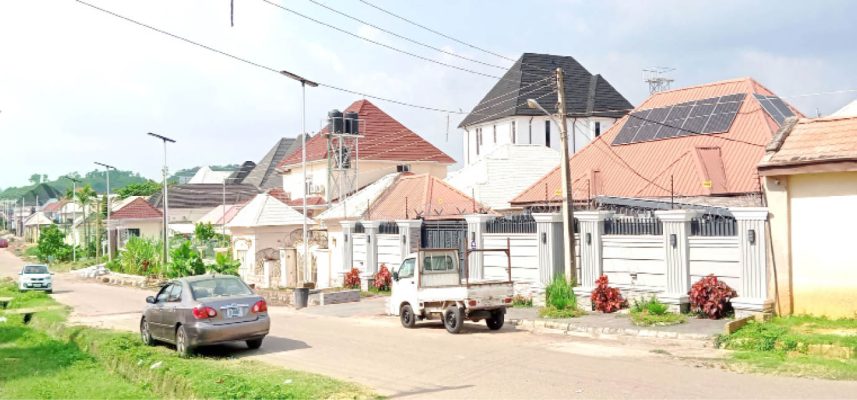Renting an apartment in Abuja has become increasingly unaffordable for many residents, forcing a steady migration to nearby towns in Niger and Nasarawa States. The combination of limited affordable housing and Nigeria’s worsening cost of living has made the capital city one of the most expensive places to rent in the country.
Under existing tenancy laws, landlords are allowed to request up to one year’s rent in advance. However, many Abuja property owners now demand payments covering two years, putting additional strain on tenants already struggling with inflation. Analysts say weak regulation and market-driven pricing have rendered rent control largely ineffective.
Soaring Costs Push Residents Out
In prime districts such as Guzape, Maitama, Asokoro, Wuse, and Jabi, rents for a one-bedroom flat can reach ₦3 million annually. As a result, residents are relocating to suburban areas like Suleja, Madalla, Mararaba, and Masaka, where housing is cheaper but transportation costs have surged.
Civil servant Olajide Bayo said his rent had risen by more than 200 percent in three years. “A one-bedroom apartment I paid ₦500,000 for now costs ₦2 million. I had to move to Mararaba,” he said. Others, including Solomon Kumai and Keturah Danjuma, shared similar experiences, noting that some landlords now double rents within a single year.
Landlords Blame Inflation and Building Costs
Landlords insist that the economic reality has left them with little choice. Nuhu Ahmadu, who owns property in Apo, said rising construction expenses are the main driver. “We are not greedy. Cement prices have jumped from ₦4,000 to over ₦10,000. We raise rents just to cover maintenance,” he explained.
Another property owner, Chinedu Akabueze, said inflation affects everyone. “Landlords and tenants face the same hardship,” he noted, while Christopher Danladi added that even maintenance materials now cost three times what they did previously.
Experts Urge Housing Reform and Home Ownership
Real estate expert Abdullahi Sani warned that without government action to make land, financing, and building materials more affordable, rents will continue to climb. Property agent Abdullahi Musa advised Nigerians to begin investing in home ownership. “Start small — buy land and build gradually,” he suggested.
Former Real Estate Developers Association of Nigeria (REDAN) president, Aliyu Wamakko, blamed the crisis on poor regulation. He said the Real Estate Regulatory Council Bill (RERCON), intended to curb illicit property practices and ensure better oversight, was passed by the last National Assembly but declined by President Bola Tinubu.
With little relief in sight, Abuja’s housing market continues to price out middle- and low-income earners — leaving many to seek shelter beyond the capital’s borders.


